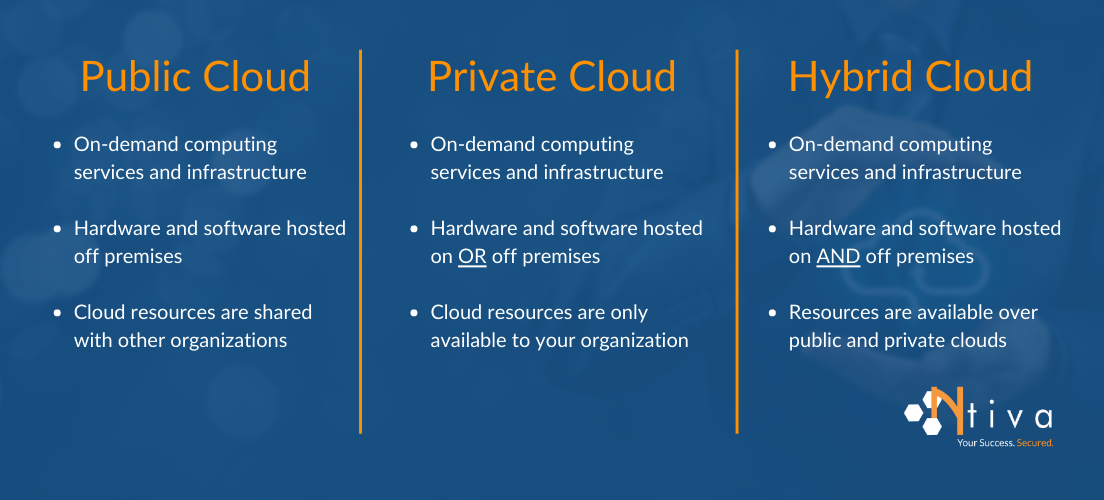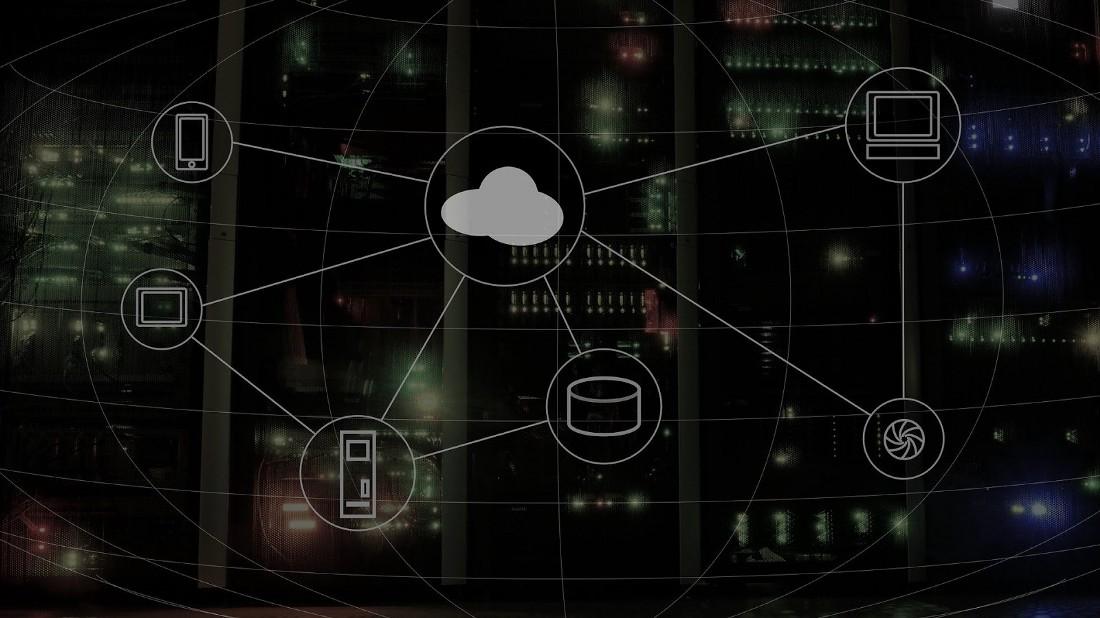Getting your business files on the move is not an easy task. Thanks to the cloud solution that enables businesses to store and access data from anywhere in the world. Cloud services is a cost-effective way to manage your business, and boost your productivity.
In this article, today we will explain why cloud solution is important, and what are the various types of cloud solution to choose from.
Why Cloud Solution is Important
Here is a rundown of why cloud solution is important for your business.
- Your team can access data from anywhere in the world;
- It improves flexibility in making business decisions;
- Your data is safe, and you can improve privacy and security and have better control over it;
- It is an economical and cost-effective way to manage business;
- Works well for remote teams, and manages team coherence;
- You can have reliable data backups;
- Process automation is done seamlessly;
- You can implement the latest technology;
- Better team collaboration with constant user consistency;
Types of Cloud to Choose From
You can choose from the below cloud solutions based on your business needs.
Public Cloud
In cloud computing, a public cloud is the most common cloud storage. In a public cloud, all the resources are available to the general public.
The information is hosted on an external server, unlike the local data center.
Benefits
Organizations and businesses can instantly scale up or down their storage based on their needs. It comes without any substantial cost for the infrastructure.
Since managing the hardware, bandwidth and infrastructure are the responsibility of the supplier, you dont have to worry about the cost associated with it.
You can use their services on a pay-per-use basis, thus it becomes budget-friendly for you.
The multiple backup infrastructures of the public could allow quick data disaster recovery. As a result, there is minimal risk of losing data.
Public cloud providers like Microsoft Azure ensure disaster recovery without any additional infrastructure costs.
It’s easier for you to adapt during peak loads. Your cloud service provider deletes or adds resources based on the need, and it’s easier for you to deploy the data.
Cons
When using a public cloud you will have to be more concerned in terms of cybersecurity. If any other company using the same cloud service provider misuses it, it can impact your security issues.
However, if the provider is reliable, this kind of risk is rare.
While a public cloud provides you with an easy payment method, as you adopt a pay-as-you-go model. However, if you do not monitor the internal costs, it will turn out to be very expensive.
It can limit your customization. At times this could be very catastrophic for your organization because you can’t control the back-end process.

Private Cloud
Below are the pros and cons of a private cloud.
Pros
The goal behind choosing a private cloud is increased security. When you host data in the organization’s property on a private cloud, it gives confidence to the stakeholders, board members, and senior leadership.
In private cloud storage, access to computing resources is controlled by secure network links thus providing increased data security.
The private cloud provides you with greater customization options and it accommodates workloads from proprietary applications and data which is aligned with your business needs.
41% of IT decision say it’s less expensive to operate a private cloud. As a result, it decreases the overall cost of ownership and improves cost effectiveness!
Private cloud maintains HIPAA Compliant Hosting and PCI Compliant Hosting that will help you align with regulatory compliance for patient data, or other sensitive records.
Cons
Private cloud includes larger capital investments. You’ll need a huge investment:
- Servers;
- Network Infrastructure;
- Data centers;
- Software licenses.
Your on-premises cloud management needs highly qualified staff to configure, patch, and manage it. You’ll have to bear all the costs related to training, resources, benefits, and salaries.
Maintenance cost is higher than that for public cloud solutions because you will have to manage servers, network infrastructure, data center, and software licenses.
In case of power outages, or software failure, you will face huge data losses that make a private cloud unreliable. This can not happen in public data centers because they have huge power backups and deploy redundant data centers.
Hybrid Cloud
As its name suggests a hybrid cloud allows you to switch between a private and public cloud on a need basis. It refers to a computing environment where businesses often combine on-premises and cloud services.
Let’s get into the benefits/drawbacks.
Pros
It provides flexibility to switch between private and public cloud storage. With hybrid cloud computing, your company can easily evaluate which one is best for your business needs.
If you have a wide range of management and service models, you can easily choose a less risky solution that’s appropriate for your business needs.
Once a company chooses a particular cloud provider, it’s hard to switch to others and therefore they feel locked in. You can overcome this by choosing a hybrid model. The obstacles could be due to technical or legal issues.
Hybrid cloud solutions have better resource allocation, and therefore you do not need to invest in various storage devices. Even then it can help you create a cluster, block, or group of data and retrieve it back once you need it.
In a hybrid cloud environment, the cloud workload could be distributed between cloud storage and on-premises storage. This enables it to handle the extra load easily thus improving the efficiency of your business processes.
Data moves faster to DevOps with hybrid could storage.

The great thing about a hybrid cloud is it gives your business mobility. You can access your resources over the internet with ease without losing its competitiveness.
In a hybrid environment, you can keep your sensitive data in a private cloud. Since the data is on various data centers, it’s less prone to attacks.
Cons
It’s difficult to implement because of the strong local infrastructure including storage, servers, and network capabilities.
The in-house installation and maintenance of the hybrid cloud are higher, therefore it comes with a lot of expenses.
Since you will be switching between private and public clouds, any system that’s been wrongly used by another company can cause trouble to a large extent.
In a hybrid cloud environment, both the public and private cloud work together. Sometimes they are not easily synchronized and thus they are not compatible with each other.
Here’s an example:
- The back-end data center component can not respond as quickly as the front-end public cloud component thus creating complexities.
Since all the information is distributed between the private and public clouds, it’s sometimes very hard to wholesome view of all the information.
Multi-Cloud
Pros
Choosing a multi-cloud gives you the freedom to identify what serves you the best. Instead of sticking to only one cloud service and holding on to the lunch menu, you can choose a la carte based on your business needs.
It gives you full control to choose what you really need. You don’t have to rely on that single cloud service provider anymore. You can move away from the vendor whenever you feel it doesn’t serve you.
If you choose a multiple cloud strategy, you will have a more expansive reach. You can choose a data center that’s nearer to your user base so that they can access data seamlessly.
Outages in cloud services are very common. And, if you have the same vendor for your cloud storage, and if the vendor goes down so you do. Alternatively, if your cloud storage is spread over multiple providers, your network won’t go down all at once.
It saves you a lot of money. If you have hired a vendor, you will have to pay even if you dont use their system. However, if it’s choosing multiple clouds enables you to pay for what you use.
Cons
Having multiple storages means dealing with multiple vendors with various feed structures, payment methods, and pricing structures. Thus it because very confusing to keep an eye of the fluctuating prices every single month.
Managing multiple clouds is not an easy job. To deal with the multiple inter lapping processes, you will have to hire more engineers and developers.
Since you will be dealing with interconnection options, there could be several security breach possibilities thus increasing the security risks.
Cloud Storage and File Sharing Solutions for 2022
S3 object storage
This web storage is scalable and of high speed. S3 storage allows you to deliver management capabilities to store your data, organize it and retrieve it effortlessly. We have available following locations: Kazahstan, Prague, Russia, USA, Singapore, China
It is one full-stack cloud solution to foster enterprise digital transformation.
CDNvideo Media storage
While most people use CDNvideo Media Storage for personal use, it is a great cloud solution for businesses for file storage, sharing, and syncing. CDNvideo Media storage for business provides a free 5 GB space, and later you will be charged $30/month for 100GB
Conclusion
Before you could choose a certain cloud solution, measure the business needs, and identify the data risks, and security concerns in order to protect the sensitive information of your business. Choosing the best cloud solution for your business is a rigorous process. Which cloud solution do you leverage for your business? Let us know in the comment section below.



